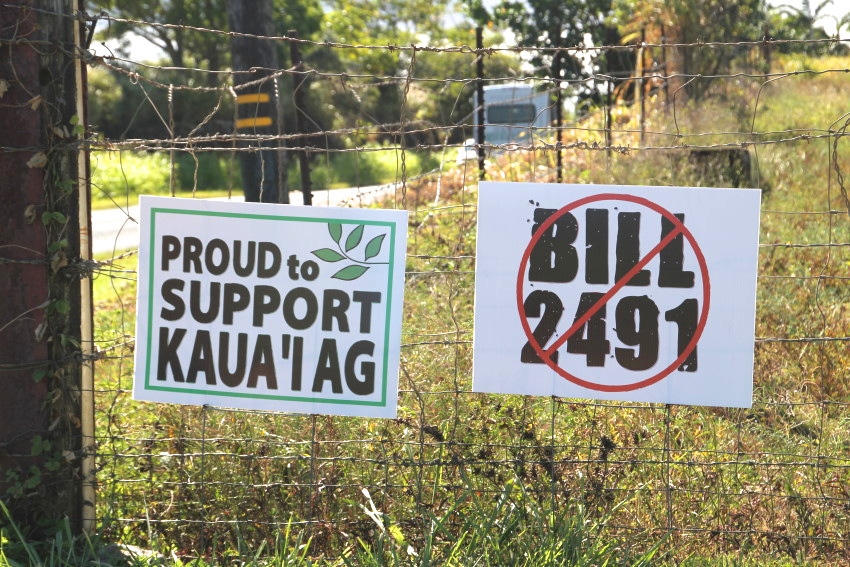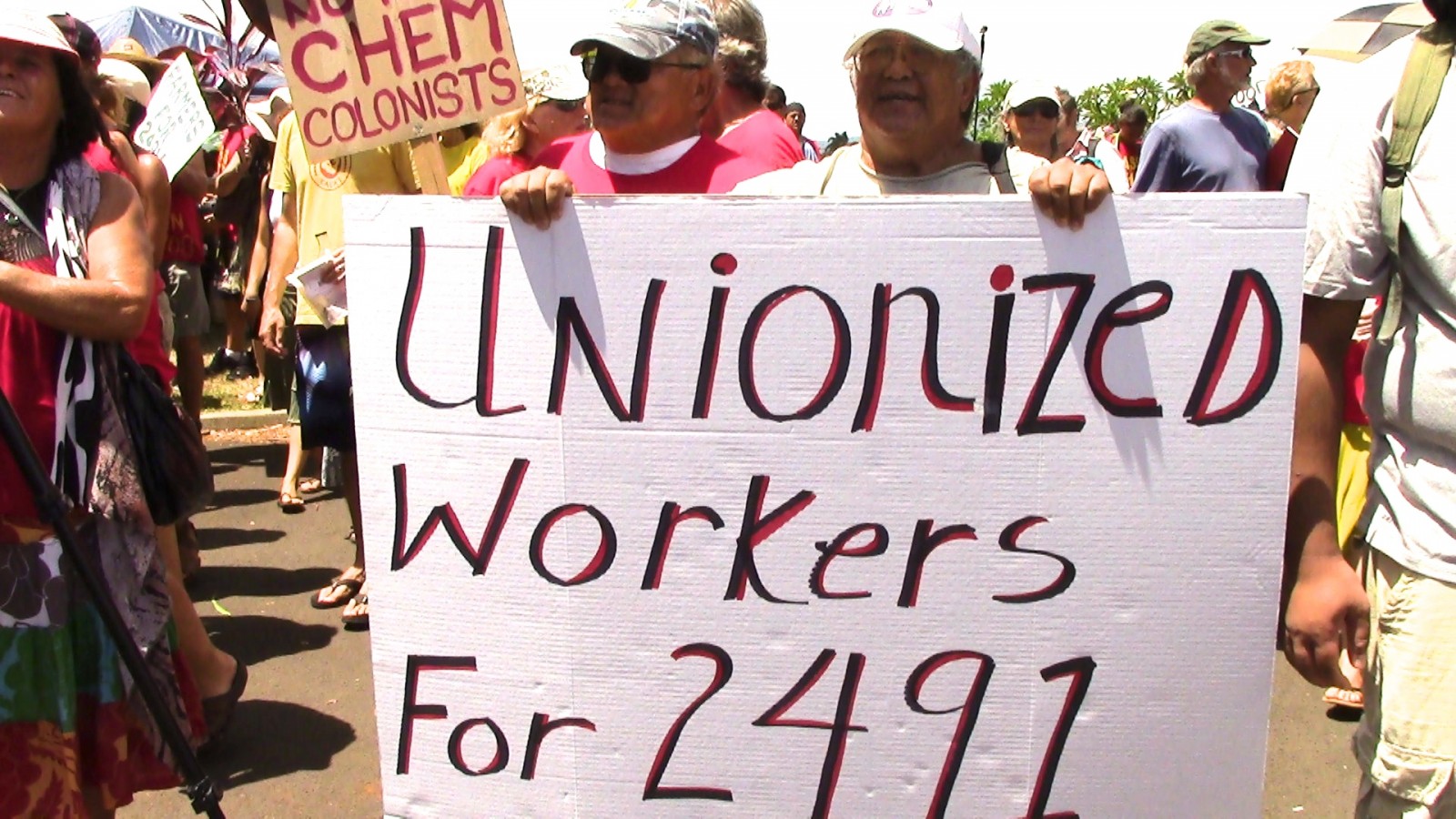
After a cunning political maneuver, the Kauai County Council has overridden Kauai Mayor Bernard Carvalho’s veto of Bill 2491, freeing the way for the GMO-related bill.
Bill 2491, which passed a County Council vote on October 16, will force agricultural companies to disclose when and where they spray pesticides, restrict spraying to a certain distance away from public areas, and disclose what genetically engineered crops they grow on Kauai.
Mayor Carvalho vetoed the bill two weeks after its passage, citing concerns over its legal standing. In a press release he said, “I have always said I agree with the intent of this bill to provide for pesticide use disclosure, create meaningful buffer zones and conduct a study on the health and environmental issues relating to pesticide use on Kauai. However, I believe strongly that this bill is legally flawed. That being the case, I had no choice but to veto.”
Supporters of the bill and many members of the County Council were outraged. When Carvalho appeared before the public, jeers and callsfor his resignation emanated from the crowd.
The County Council could override the veto with five votes, but when it came time for the vote last Thursday, it was not clear they would have a fifth supporter. The Council elected to delay the vote so they could appoint a seventh council member.
The Council on Friday appointed Mason Chock to replace Nadine Nakamura, who had left the Council, ironically, to become Mayor Carvalho’s managing director.
On Saturday, the Council voted to override the veto by a count of 5-2. Mayor Carvalho left before the vote took place.
Meanwhile, as reported in the Star Advertiser:
The bill now becomes law and will take effect in nine months. Lawsuits are expected to be filed by biotech companies to challenge the new law. Attorney Paul Alston, who represents agribusiness Syngeta, said, "There will definitely be a lawsuit."
He called the process the Council followed to override the mayor's veto "deeply troubling and suspect."
Councilmen Mel Rapozo and Ross Kagawa voted no. The newest member of the council, Mason Chock, voted yes, along with Council Chairman Jay Furfaro, and Councilmembers Gary Hooser, Tim Bynum and JoAnn Yuki-mura.
In a statement after the vote, Carvalho said, "Of course we will honor the Council's decision and I will continue to work with my departments to determine how we will implement this new law, which is scheduled to take effect in nine months."
Bill 2491 would require mandatory disclosure of pesticides they use to spray on their fields and genetically modified crops by large agribusinesses. Affected companies are Syngeta, DuPont Pioneer, Dow AgroSciences, BASF as well as Kauai Coffee, the largest coffee grower in the state.
Advocates said the measure is needed to protect public health and the island's environment. Opponents of Bill 2491 contend it's legally flawed and puts the county at risk with legal challenges.
Hooser and Bynum co-introduced the bill because of inaction from the state to address concerns of pesticide exposure. Last Wednesday, state officials announced they had completed guidelines for a voluntary compliance program for agribusinesses on Kauai. Guidelines in the Kauai Agricultural Good Neighbor Program include voluntary compliance of pesticide use and buffer zones but the guidelines are not as stringent as the provisions in Bill 2491.
3 WAYS TO SHOW YOUR SUPPORT
- Log in to post comments














Comments
mulberry pl... replied on
mulberry plånböcker
There is perceptibly a lot to know about this. I believe you made various nice points in features also.
mulberry plånböcker http://www.classicmotor.nu/hals.asp?bok=mulberry-planbocker